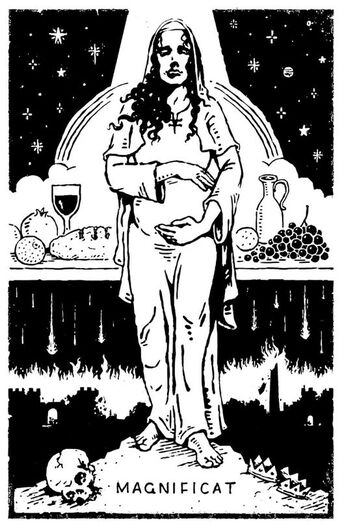 Artwork: Stephen Crotts Artwork: Stephen Crotts 45.7 million people have been forced to flee their homes, but not their country (i.e. internally displaced). *Source Be silent for a moment and consider: what might it feel like to have an unsafe home/city/country? And what if your options to find safety were extremely limited? This is an oft-misunderstood part of the refugee story. Internally displaced people have not crossed borders but have still been forced out of their homes. They are often in danger of the same threats that caused them to flee, still potentially subject to the same government, gangs, terrorist groups and economic conditions, but without the familiarity or security of home. The Biblical story of Israel gives us examples of this internal displacement: “Because the power of Midian was so oppressive, the Israelites prepared shelters for themselves in mountain clefts, caves and strongholds.” (Judges 6:2) They did not cross any borders, but they were not home and they were not safe. At the time of Jesus’ birth Hebrew people were living in Judea, but they were not in possession of the land. They had seen a succession of conquering nations – Assyrians, Medo-Persians, Greeks, and finally Romans – tromp through the land with their armies and tax collectors. Various religious and political groups had different strategies for dealing with these Empires, from cooperation to separation in the desert to hiding in caves and plotting terroristic resistance. Any hint of sedition towards the Roman Empire was met with violent and sometimes indiscriminate reprisals, including mass crucifixions. Jesus was born into a powder-keg situation, as part of a people who were in their land but not at home, not safe. The fear, anger, resistance, and faithful hope of this situation is powerfully summarised by Mary’s Magnificat: My soul magnifies the Lord, and my spirit rejoices in God my Savior, for he has looked on the humble estate of his servant. For behold, from now on all generations will call me blessed; for he who is mighty has done great things for me, and holy is his name. And his mercy is for those who fear him from generation to generation. He has shown strength with his arm; he has scattered the proud in the thoughts of their hearts; he has brought down the mighty from their thrones and exalted those of humble estate; he has filled the hungry with good things, and the rich he has sent away empty. He has helped his servant Israel, in remembrance of his mercy, as he spoke to our fathers, to Abraham and to his offspring forever. (Luke 1:46-55) Read: Luke 1:67-79 Prayer: Pray the Magnificat and Zechariah’s prayer for the 45.7 million people in our world who have been internally displaced. Pray that God would lift them up, fill them, remember them, and have mercy on them. Then ask the question: What can you do to make your home, your community, safer for those who are vulnerable?
0 Comments
Your comment will be posted after it is approved.
Leave a Reply. |
WELCOME!
Our vision is to help people survive and recover from forced displacement. We do this together with the church, both globally, and locally in Canada. Archives
May 2024
Categories |
ABOUT IAFR.CA |
OPPORTUNITIES |
AFFILIATES
|
CONTACTIAFR Canada
374 Sheppard Ave E Toronto, ON M2N 3B6 [email protected] Please Note: IAFR Canada does not sponsor people to resettle in Canada. You may want to contact one of Canada's sponsorship agreement holders. |
|
*IAFR Canada is a distinct organization from IAFR USA
All photos on this website are by IAFR unless otherwise noted |
© 2020 International Association For Refugees Canada

 RSS Feed
RSS Feed